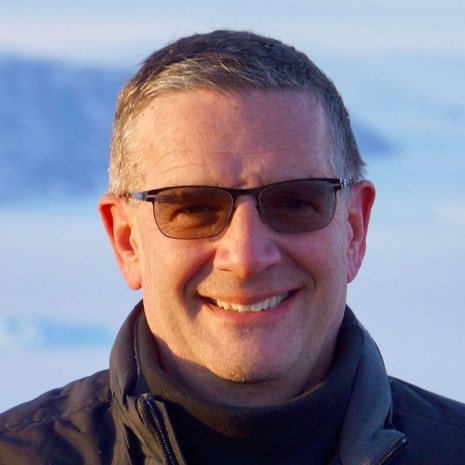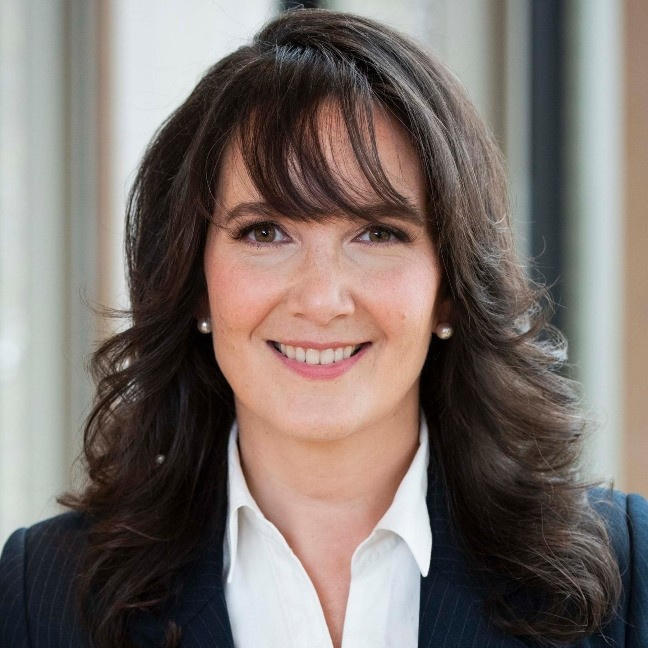Polar Careers Outside Academia
-
On Thursday, August 7, 2025, 8am AKT | 10am MT | 12pm ET we hosted a ‘Polar Careers Outside Academia” panel discussion for early career researchers interested in career pathways outside of the classic academic route. On that day PSECCO brought together four panelists to discuss their varied career pathways and discuss questions from participants about working outside of academia.
A recording of the panel discussion can be accessed here.
Panelists for the event were Dr. John Farrell, Stacey Lucason, Brenda Riley, and Daphne Wellman. Read on to learn more about the panelists below.

Dr. John Farrell is the Executive Director of the U.S. Arctic Research Commission, an independent federal agency of Presidential appointees that advises the White House and Congress on Arctic research and works with executive branch agencies to establish and execute a national Arctic research plan. The Commission also facilitates cooperation with local and state governments and reccomends means for developing international scientific cooperation in the Arctic. Dr. Farrell obtained a PhD and MSc in geological sciences from Brown University and a BA in geology from Franklin and Marshall College. He was an NSF-funded postdoctoral fellow at Brown University and an NSERC-funded senior research associate at the University of British Columbia, Vancouver, Canada. Dr. Farrell previously served as the Associate Dean of Research and Administration at the University of Rhode Island Graduate School of Oceanography. Before that, he was the director of the international Ocean Drilling Program.

Stacey Kangipneq Lucason is a dual-citizen of the Ninilchik Tribe and United States of America. She is of Yup’ik and Scandinavian descent, and makes her home on Dena’ina lands near Anchorage, Alaska. Her education includes time spent in community college and university classrooms, experience on the lands and waters in Alaska, and in learning new things daily with her daughter. She holds a bachelor’s degree from the University of Alaska Anchorage and studied Philosophy, Biology, and Alaska Native Studies there. She also served as UAA’s Student Body President and on the University of Alaska system’s Board of Regents. She works presently as a parent, community advocate, and in her role with Kawerak as a Tribal Research Coordinator in support of the interests of Tribes in the Bering Straits Region. Much of her work has been in expanding access and creating pathways for Indigenous Peoples to excel in all facets of life. She has been involved in shaping institutions of higher education and public research to better serve Indigenous Peoples, continues to build connections across the Arctic with researchers and policymakers, and is always seeking ways to live authentically as a modern Yup’ik person.

Brenda Riley is a lifelong Alaskan who graduated from the University of Alaska Fairbanks with a B.A. in Anthropology, with a focus on post-contact archaeology. Brenda was the founding Executive Director of the Fairbanks Children’s Museum and later served as the Executive Director of the United Way of the Tanana Valley. Her experience in the nonprofit sector also includes serving on multiple nonprofit boards, founding the Golden Heart Women Who Care, a local philanthropy group, and providing consulting services in financial management, grant writing, and organizational development. Brenda is currently the Operations Director at the Cold Climate Housing Research Center, a nonprofit organization that focuses on sustainable solutions for healthy and resilient homes in cold climates.

Daphne Wellman is a Program Specialist with Scholarship Partners Canada. Daphne holds a Bachelor of Science in Environmental Science from the University of Toronto. She has spent most of her career in the charitable sector managing projects that drive environmental and social change. She currently manages scholarship programs that support environmental research in northern Canada and greater inclusion of women in STEM.
FAQ for virtual PSECCO-hosted events
All participants are expected to follow PSECCO’s community guidelines throughout the entirety of the event.
We highly encourage participants to have a working camera that is on during events, as it allows for better engagement. However, a camera is not a requirement to attend PSECCO events unless otherwise stated in the event description.
- Many of the events that we host are recorded. All recorded events are made available after the event on the Center for Education, Engagement and Evaluation (CEEE)’s YouTube channel in a PSECCO playlist to be viewed, within approximately one week of the event. All relevant links/resources are also made available after the event.
- Some of the events that we host heavily rely on real-time engagement or are discussion-based. These events are often not recorded. People will benefit most from these events if they attend them in their entirety.
- If you arrive late at an event, tech support will still be able to let you in up to 15-minutes into the event. After that time, no new attendees will be admitted, as we design our events to build upon the content foundation that is built at the start.
If you know that you can’t attend the event anymore, please cancel your registration by emailing psecco@colorado.edu no later than 48 hours before the event. This enables those who may be waitlisted to attend the event and also helps the PSECCO team accurately plan for the event.
- Upon registering for an event, you will receive a confirmation email from Constant Contact with a meeting link.
- We send pre-event reminder emails 2 weeks, 1 week, and 1 day prior to the event. The meeting link is hyperlinked in each of these reminder emails.
- If you are unable to access the meeting link through these methods, please email psecco@colorado.edu no later than 24 hours before the event.
